
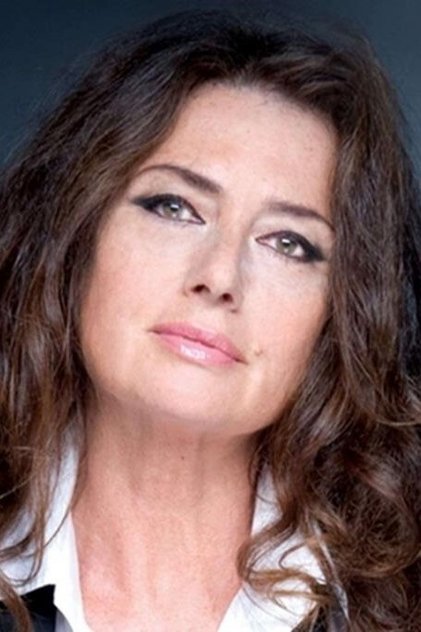
Gigliola Cinquetti
Born: December 20, 1947
in Verona, Veneto, Italy
in Verona, Veneto, Italy
Gigliola Cinquetti (born Giliola Cinquetti on 20 December 1947) is an Italian singer, songwriter, and television presenter.
Gigliola Cinquetti was born into a wealthy family in Verona. From the ages of 9 to 13, she studied and took piano lessons, taking exams in music theory. She loves painting and art. Her career as a professional singer began when she was 16.
At the age of 16 she won the Sanremo Music Festival in 1964 singing "Non ho l'età" ("I'm not old enough"), with music composed by Mario Panzeri and lyrics by Nicola Salerno. Her win enabled her to represent Italy in the Eurovision Song Contest 1964 in Copenhagen with the same song, where she claimed her country's first ever victory in the event. Cinquetti became the youngest winner of the contest, aged 16 years and 92 days. Only one younger artist has triumphed since: Sandra Kim in 1986.
The song became an international success, even spending 17 weeks in the UK Singles Chart and ending the year as the 88th best-selling single in the U.K. in 1964, something highly unusual for Italian-language material. It sold over three million copies, and was awarded a platinum disc in August 1964. In 1966, she recorded "Dio, come ti amo" ("God, How I Love You"), which became another international hit.
One of her other songs, "Alle porte del sole" (released in 1973), was re-recorded in both English (as "To the Door of the Sun") and Italian by Al Martino, two years after its initial release; "To the Door of the Sun" reached No. 17 on Billboard's Hot 100 in the United States. Cinquetti's own English version of the song was released as a single by CBS Records in August 1974, with her original 1973 Italian version on the B-side.
Cinquetti returned in the Eurovision Song Contest 1974, held in Brighton, where she again represented Italy. Performing the song "Sì" ("Yes"), the music and lyrics of which were written by Mario Panzeri, Daniele Pace, Lorenzo Pilat and Carrado Conti, she came second with 18 points after "Waterloo", sung by Sweden's ABBA, who won with 24 points. The live telecast of her song was banned in her home country by the Italian national broadcaster RAI, as the event partially coincided with the campaigning for the 1974 Italian divorce referendum which was to be held a month later in May. RAI censored the song because of concerns that the name and lyrics of the song (which constantly repeated the word 'Sì') could be accused of being a subliminal message and a form of propaganda to influence the Italian voting public to vote 'Yes' in the referendum. The song remained censored on most Italian state TV and radio stations for over a month. Cinquetti later recorded versions of the song in English ("Go (Before You Break My Heart)"), French ("Lui"), German ("Ja") and Spanish ("Si"). The English-language version reached number 8 in the UK Singles Chart in June 1974.
She graduated from the art school of Salerno, also obtaining the qualification to teach. She married Luciano Teodori in 1979, and they have two children together — Giovanni and Costantino. She has a sister named Rosabianca. Her parents are Luigi and Sara. ...
Source: Article "Gigliola Cinquetti" from Wikipedia in English, licensed under CC-BY-SA 3.0.
Gigliola Cinquetti was born into a wealthy family in Verona. From the ages of 9 to 13, she studied and took piano lessons, taking exams in music theory. She loves painting and art. Her career as a professional singer began when she was 16.
At the age of 16 she won the Sanremo Music Festival in 1964 singing "Non ho l'età" ("I'm not old enough"), with music composed by Mario Panzeri and lyrics by Nicola Salerno. Her win enabled her to represent Italy in the Eurovision Song Contest 1964 in Copenhagen with the same song, where she claimed her country's first ever victory in the event. Cinquetti became the youngest winner of the contest, aged 16 years and 92 days. Only one younger artist has triumphed since: Sandra Kim in 1986.
The song became an international success, even spending 17 weeks in the UK Singles Chart and ending the year as the 88th best-selling single in the U.K. in 1964, something highly unusual for Italian-language material. It sold over three million copies, and was awarded a platinum disc in August 1964. In 1966, she recorded "Dio, come ti amo" ("God, How I Love You"), which became another international hit.
One of her other songs, "Alle porte del sole" (released in 1973), was re-recorded in both English (as "To the Door of the Sun") and Italian by Al Martino, two years after its initial release; "To the Door of the Sun" reached No. 17 on Billboard's Hot 100 in the United States. Cinquetti's own English version of the song was released as a single by CBS Records in August 1974, with her original 1973 Italian version on the B-side.
Cinquetti returned in the Eurovision Song Contest 1974, held in Brighton, where she again represented Italy. Performing the song "Sì" ("Yes"), the music and lyrics of which were written by Mario Panzeri, Daniele Pace, Lorenzo Pilat and Carrado Conti, she came second with 18 points after "Waterloo", sung by Sweden's ABBA, who won with 24 points. The live telecast of her song was banned in her home country by the Italian national broadcaster RAI, as the event partially coincided with the campaigning for the 1974 Italian divorce referendum which was to be held a month later in May. RAI censored the song because of concerns that the name and lyrics of the song (which constantly repeated the word 'Sì') could be accused of being a subliminal message and a form of propaganda to influence the Italian voting public to vote 'Yes' in the referendum. The song remained censored on most Italian state TV and radio stations for over a month. Cinquetti later recorded versions of the song in English ("Go (Before You Break My Heart)"), French ("Lui"), German ("Ja") and Spanish ("Si"). The English-language version reached number 8 in the UK Singles Chart in June 1974.
She graduated from the art school of Salerno, also obtaining the qualification to teach. She married Luciano Teodori in 1979, and they have two children together — Giovanni and Costantino. She has a sister named Rosabianca. Her parents are Luigi and Sara. ...
Source: Article "Gigliola Cinquetti" from Wikipedia in English, licensed under CC-BY-SA 3.0.
Movies for Gigliola Cinquetti...
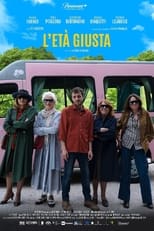


Title: The A-Z of Eurovision
Character: Self - Presenter (Archive Footage)
Released: May 16, 2020
Type: Movie
Rylan Clark-Neal narrates a guide to all things Eurovision and takes a sideways look at the greatest singing contest on the planet. The A-Z of Eurovision features all the disasters, the costume changes and memorable musical moments from 65 years of Eurovision.

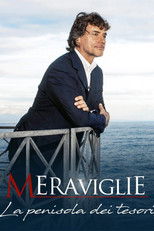
Title: Meraviglie. La penisola dei tesori
Character: Self
Released: January 4, 2018
Type: TV
The beautiful Italy

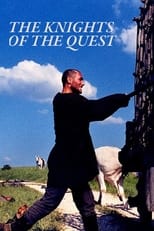
Title: Knights of the Quest
Character: Madre Superiora
Released: April 6, 2001
Type: Movie
In 1271, five young knights journey to Thebes in Greece to recover the Sacred Shroud and deliver it back to France and into the hands of the royal family.

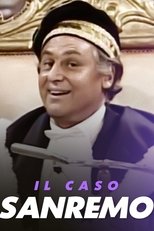
Title: The Sanremo Case
Character: Self
Released: January 27, 1990
Type: TV
An ironic and comic trial, in five episodes, of the history of the Sanremo Festival, demystifying the most solemn musical event on Italian television. The "judge" Renzo Arbore presides, together with "Prosecutor" Michele Mirabella and "Defense attorney" Lino Banfi.

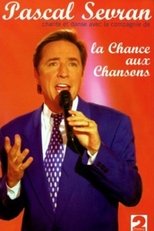



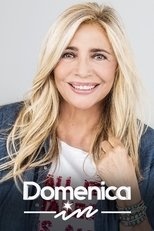


Title: Rendezvous bei Caterina Valente
Character: Self
Released: January 9, 1976
Type: TV




Title: Les Rendez-vous du dimanche
Character: Self
Released: January 12, 1975
Type: TV
A talk show presented by Michel Drucker


Title: Hätten Sie heut’ Zeit für mich?
Character: Self - Singer
Released: June 1, 1972
Type: TV






Title: Peter Alexander präsentiert Spezialitäten
Character: Self
Released: March 9, 1969
Type: TV


Title: Die ZDF-Hitparade
Character: Self
Released: January 18, 1969
Type: TV
The ZDF-Hitparade, or Hitparade for short, by German TV channel ZDF, was one of the most popular and most well-known music television series presenting mostly German Schlager.



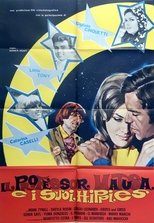



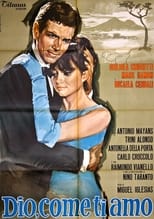
Title: How Do I Love You?
Character: Gigliola Di Francesco
Released: April 1, 1966
Type: Movie
Gigliola is a young and humble Neapolitan swimmer who will compete in a competition in Spain and finds herself falling for the fiance of her best friend. But when they come to visit her in Italy, she pretends to be rich, with the complicity of their parents.

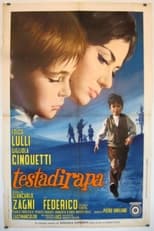
Title: Testadirapa
Character: Angelina la maestra
Released: January 1, 1966
Type: Movie
The 19th century tale of Testadirapa and his young son Gosto who live an idyllic life until authorities jail for the father for keeping the boy from school.


Title: Die Rudi Carrell Show
Character: Self - Singer
Released: October 25, 1965
Type: TV

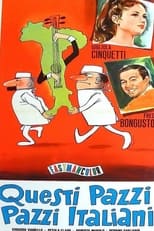
Title: Questi pazzi, pazzi italiani
Character: Self
Released: January 1, 1965
Type: Movie

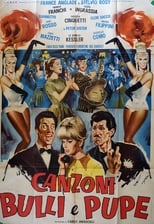
Title: Canzoni, bulli e pupe
Character: Self
Released: May 29, 1964
Type: Movie
In order to promote a plumcake an adman associates with a mad scientist who has found a way to interfere with TV broadcasts.







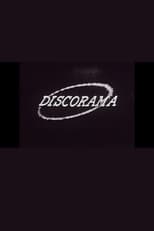

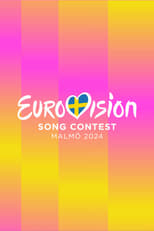
Title: Eurovision Song Contest
Character: Self - Presenter
Released: May 24, 1956
Type: TV
The Eurovision Song Contest is an international song competition, organised annually by the European Broadcasting Union (EBU) and featuring participants representing primarily European countries. Each participating country submits an original song to be performed on live television and radio, transmitted to national broadcasters via the EBU's Eurovision and Euroradio networks, with competing countries then casting votes for the other countries' songs to determine the winner.

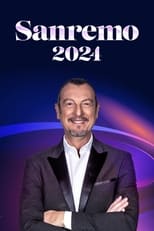
Title: Sanremo Music Festival
Character: Self - Special Guest
Released: January 29, 1951
Type: TV
The Sanremo Music Festival is the most popular Italian song contest and awards, held annually in the town of Sanremo, Imperia, Italy, and consisting of a competition amongst previously unreleased songs. The Festival was the inspiration for the Eurovision Song Contest.
